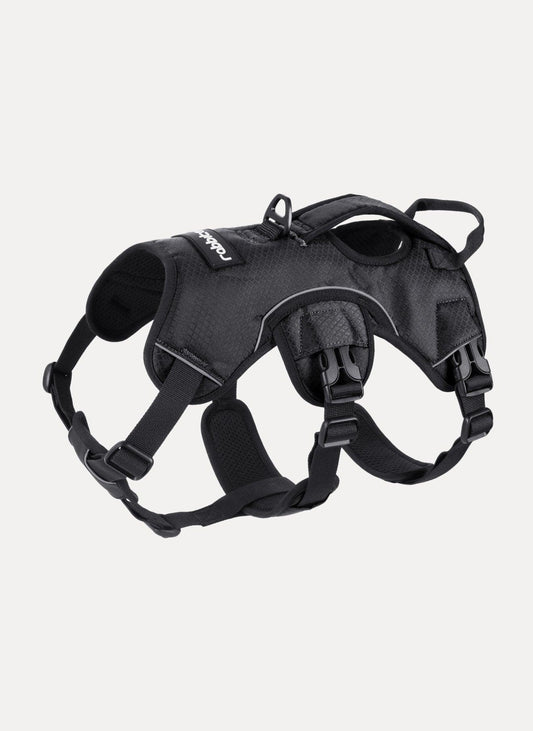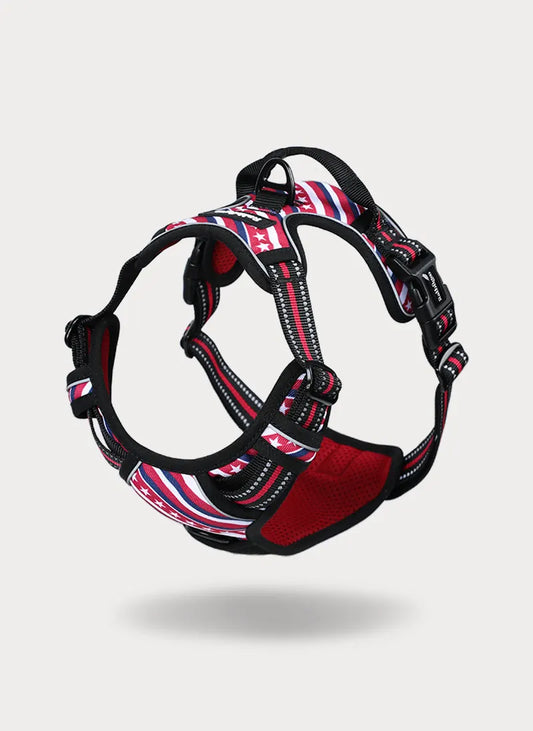Do these if a dog bites you
As the number of pet dogs continues to rise, incidents of dog bites may have become increasingly common around you. According to statistics, there are approximately 800,000 cases annually in the United States where individuals require medical treatment due to dog bites, which undoubtedly confirms that dog bites are a widespread and significant issue in the country.
Regardless of breed, size, or age, dogs inherently possess a certain level of aggression. So, which dog breeds have particularly strong bite forces? And what factors prompt them to initiate an attack? To effectively address this challenge, how should we prevent and properly handle dog bite incidents?

What dog has the strongest bite?
Knowing common dog breeds with strong bite force is crucial for us to take precautions in advance and ensure our own safety when we encounter them.
Top 1: Rottweiler
Among the many common dog breeds, the Rottweiler is widely known for its amazing bite force. Their bite force can reach 328 PSI (about 315 pounds to 330 pounds), and some even say that their bite force can reach 1180 PSI. Although Rottweilers generally display a stable character and a high degree of obedience, they are fully capable of causing significant harm to humans when they feel threatened or are defending themselves.
Top 2: Pit Bull Terrier
The pit bull, a breed bred specifically for dog fighting competitions, is more ferocious and aggressive. Its bite force is also not to be underestimated, reaching 235 PSI. Although the bite force of the pit bull is slightly inferior to that of the Rottweiler, they have extremely tough skin that lacks pain sensory nerves, and their well-developed muscle groups make them almost fearless when attacking, making it difficult for opponents to fight back.
Tied for second: German Shepherd
In addition, there is another common dog breed that has a strong bite force, that is the German Shepherd. Like the Rottweiler, it has a relatively stable personality, abundant physical strength and intelligence, making it a good helper for search and rescue investigations. Its bite force can also reach 238 PSI, which is comparable to that of a pit bull.
5 Reasons why a dog bites you
Dog bites are affected by many factors, including but not limited to the dog's own personality, past experiences, and the current environment and situation. The following 5 factors are more common:
1. Territorial instinct: Dogs are born with a strong sense of territory. Once a stranger approaches their resident area, they will be alert to the invasion of their territory. Under such threats, dogs will become emotional and may even take aggressive actions to defend their territory. This is undoubtedly one of the most common factors that cause dogs to bite people.
2. Food guarding habits: Food guarding is a behavior deeply rooted in the nature of dogs. When they are disturbed during the eating process, they are likely to "teach" you a lesson. If your dog seems unusually ferocious when eating, this may be a signal to prompt you to check whether its food intake is sufficient. Sometimes, hunger may drive a dog's temperament to change drastically, which in turn leads to biting incidents. (But if your dog is a picky eater, read this...)
3. Guardian instinct: Dogs are loyal companions. Once they find that their owners are threatened, they will not hesitate to stand up and protect their owners from harm. Similarly, dogs also have a deep protective feeling for their pups. If someone tries to hurt or touch their pups, dogs may take defensive measures to bite people to protect the safety of their pups.
4. Pain and Discomfort Reactions: When dogs are physically uncomfortable or hurt, they may bite in a self-protective instinct from an unintentional touch. This is usually an unintentional act to prevent further injury.
5. Lack of Socialization: If dogs are not properly socialized during their childhood, they may not be able to master the skills to get along properly with humans or other animals. Therefore, in certain situations, dogs who lack social experience may choose to bite as a way of coping.

Things you need to do if a dog bites you
If a dog bites you, it's important to take immediate and appropriate action to minimize the risk of injury and infection. Here are some steps you should follow:
- Stay Calm: The dog may cause secondary harm to you due to your violent reaction, such as screaming, moving, etc. So stay calm and avoid panicking.
- Seek Safety: Safely move away from the dog to prevent further bites. Keep a safe distance from the dog until it is under control or has been removed from the area.
- Treating wounds: First, look for any signs of bleeding, swelling, or puncture wounds and note the location. If the wound is bleeding, clean it gently with soap and water. Apply pressure to the wound to stop the bleeding, if necessary. Avoid using hydrogen peroxide or alcohol, as they can damage tissue and delay healing.
- Go to the doctor: Even if the wound seems minor, it's important to see a doctor as soon as possible. Because you can't predict whether the dog may have any underlying diseases.
- Report the Incident: If the bite occurred on someone else's property or was caused by a stray dog, report the incident to the local authorities. Provide them with any relevant information, such as the dog's description, location, and owner (if known).
- Legal Considerations: Depending on the laws in your area, you may have the right to seek compensation from the dog's owner for medical expenses and other damages. Consult with a legal professional to understand your rights and options.
How to prevent dogs from biting?
Whether you are already a dog owner or are planning to become one, it is crucial to master and practice the skills of how to effectively prevent dogs from biting people.
Stop immediately
Once you find that the dog shows certain behavioral signs, such as growling, baring teeth, hair standing up, body tense, and tail wagging quickly, as a dog owner, you should take quick action, lead the dog to a safe area, and take measures to help it calm down. At the same time, people who interact with the dog should also stop the interaction immediately and carefully keep a distance to avoid exacerbating the dog's nervous state.
Training correction
As a dog owner, you need to take more responsibility. You should help your dog develop good behavior habits through training when it is young. Training dogs can begin in 3 months, and 3-8 months are the golden section of training.
For basic obedience commands, such as sit, stand, come, lie down, etc., you can use positive training and reward snacks to let the dog understand your instructions. At the same time, if the dog accidentally bites you, you should stop the dog's behavior through exaggerated reactions to let the dog know that such behavior is incorrect.
Rabbitgoo recommends that in addition to behavioral training for your dog yourself, you can also choose to take them out to the dog park to give them the opportunity to face and contact with their own kind as a way to cultivate good behavior. In the dog park, dogs will use their unique body language to communicate, which not only helps them learn how to get along in a group, but also improves their social skills. At the same time, through contact with different types of humans, dogs can conduct more in-depth socialization training, which is essential for cultivating their gentle and friendly personalities and reducing aggressive behavior.These valuable social experiences are essential for the growth of dogs and can make them more calm when facing various social situations in the future.
Of course, in order to ensure the safety of interaction, Rabbitgoo recommends that you equip your dog with a comfortable and safe dog harness. When you first participate in outdoor interactions, guide your dog to interact correctly through a leash. This can effectively control the dog when an emergency occurs.
Final words
In short, knowing the personality and behavior of different dogs and the signs of dog biting in advance can effectively prevent being bitten. When bitten, stay calm and take first aid measures to avoid secondary injuries. Dog owners should also take responsibility, train and correct the dog's behavior and stop the dog from biting, and accompany the injured to deal with the problem.







